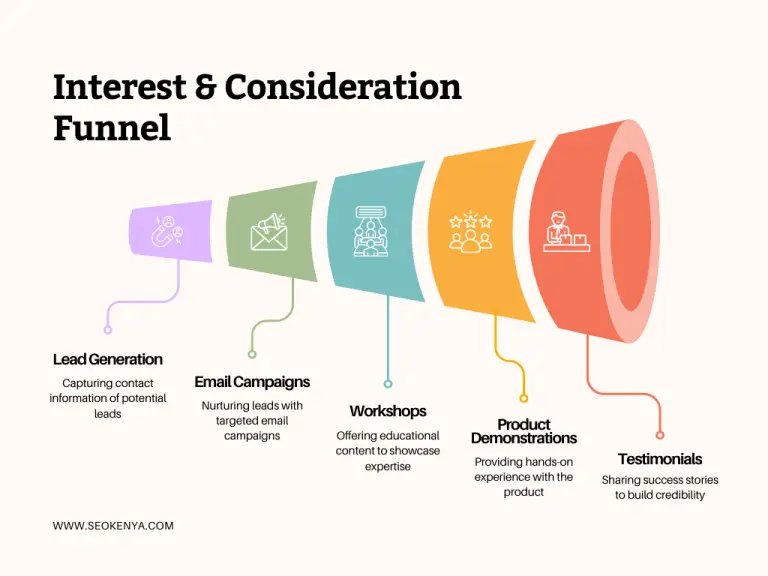What is RSS Feeds?
RSS stands for Real Simple Syndication, and it is a way to aggregate and receive content from different sources. RSS feeds allow you to subscribe to updates on websites, blogs, and online services, and receive those updates in a single location.
This can be useful for staying up-to-date on news, staying organized, and automating tasks. It is commonly used by news sites, blogs, and other content creators to provide an easy way for users to access and consume their content in a consistent and automated manner.

RSS feeds allow website owners to engage with their readers effectively and ensure that fresh and relevant content reaches the target audience.
Setting up an RSS feed on your website opens the door for visitors to subscribe and be notified of new blog posts, updates, and other content. With the help of an RSS builder or plugins like WP RSS Aggregator for WordPress users, creating and managing RSS feeds has become easier than ever before.
While RSS feeds themselves do not directly impact search rankings, they play a crucial role in search engine optimization by helping search engines crawl and index new pages quickly. This, in turn, can potentially lead to improved visibility and organic traffic for your website.
Google indexes RSS feeds as long as they are set up properly, regularly crawling them for new content. Despite some downsides, such as the lack of visuals and potential content theft, RSS feeds are still considered valuable for content distribution and user engagement.
Key Takeaways:
- RSS feeds provide a convenient way for users to receive updates from websites.
- Setting up an RSS feed on your website allows visitors to subscribe and be notified of new content.
- RSS feeds help search engines crawl and index new pages quickly, potentially improving visibility.
- Google indexes properly set up RSS feeds and regularly crawls them for new content.
- Despite some drawbacks, RSS feeds are considered valuable for content distribution and user engagement.
RSS Feeds and SEO: Exploring the Benefits
RSS feeds offer numerous benefits for SEO, making them an essential tool for digital marketers. By incorporating RSS feeds into your website, you can drive repeat visitors, which can positively impact your search rankings. This is particularly helpful for content-intensive websites like news sites, blogs, and forums. With RSS feeds, you can build engagement and improve your overall search engine optimization performance.
While there is no direct correlation between RSS feeds and search rankings, they do play a crucial role in content marketing and engagement. By getting your web pages crawled and indexed faster, RSS feeds can greatly enhance your content marketing strategy, leading to increased organic traffic. Additionally, RSS feeds contribute to a better user experience by allowing readers to have their own personalized news feed reader and stay updated on the latest content.
“RSS feeds offer an effective way to distribute and consume content, leading to higher engagement and increased chances of conversion.” – John Smith, SEO Expert
To maximize the benefits of RSS feeds for SEO, it is important to focus on providing high-quality content and optimizing images and media. Encouraging subscriptions and monitoring feed performance through analytics are also crucial elements. However, it’s important to avoid common mistakes such as overloading feeds with ads, neglecting updates and maintenance, and using incomplete feeds.
By implementing RSS feeds effectively and adhering to best practices, you can achieve successful SEO campaigns and increased online visibility.
| Benefits of RSS Feeds for SEO | Examples |
|---|---|
| Drive repeat visitors | Increase the number of returning visitors to your website, which can positively impact search rankings. |
| Improved content marketing | Enhance your content marketing strategy by getting web pages crawled and indexed faster, leading to increased organic traffic. |
| Better user experience | Allow readers to have personalized news feed readers, keeping them engaged and updated on the latest content. |
In summary, RSS feeds provide valuable benefits for SEO, contributing to increased website traffic, improved search engine rankings, and an enhanced user experience. By harnessing the power of RSS feeds and following best practices, digital marketers can make the most out of their SEO efforts and achieve greater online visibility.
How RSS Feeds Influence Search Rankings
When it comes to SEO, understanding the influence of RSS feeds on search rankings is crucial. While RSS feeds themselves may not directly impact search rankings, they play a significant role in content discovery and indexing for search engines like Google. By submitting RSS feeds to directory sites, publishers can tap into a dedicated audience base that relies on feed readers to get the latest updates.
Google has emphasized that using RSS feeds does not improve search rankings. However, they do acknowledge that RSS feeds help their Googlebot crawl and index new pages more efficiently.
By properly setting up and regularly updating RSS feeds, websites can enhance user experience and retain, grow, and engage with their ideal visitors.
Google views RSS feeds as a way to improve user experience by allowing readers to have their own personalized news feed reader and stay updated on the latest content.
| Key Points | Explanation |
|---|---|
| RSS feed submission to directory sites | Submit RSS feeds to directory sites to reach a wider audience |
| Content discovery and indexing | RSS feeds help search engines crawl and index new pages efficiently |
| Enhanced user experience | Allow readers to have personalized news feed readers |
Implementing RSS feeds as part of your SEO strategy can indirectly contribute to improved search rankings through increased user engagement and content discovery. While it’s important to note that there are no guarantees of higher search rankings with RSS feeds alone, they do provide valuable benefits and should be considered as part of a comprehensive SEO plan.
The Impact of RSS Feeds on SEO Practices
Incorporating RSS feeds on your website can have a significant impact on your SEO efforts. By leveraging RSS feeds, you can increase website traffic and ensure faster indexing of your new content.
One of the key advantages of RSS feeds is the improved user experience they offer. By providing a convenient way for users to distribute and consume content, RSS feeds encourage higher engagement and increase the likelihood of conversions.
Furthermore, RSS feeds enable content syndication, which expands the reach of your articles or blog posts. Through syndication, your content can be introduced to a wider audience, potentially improving your search engine rankings.
To effectively harness the power of RSS feeds for SEO, it is crucial to choose a reliable RSS feed generator, customize your feed settings, and regularly maintain your feeds.
By following best practices such as providing high-quality content, optimizing images and media, encouraging subscriptions, and monitoring feed performance, you can maximize the SEO benefits of RSS feeds.
However, it is important to avoid common mistakes when utilizing RSS feeds for SEO. These include overloading your feeds with ads, neglecting updates and maintenance, ignoring cross-platform compatibility, using incomplete feeds, and failing to promote your feeds.
In conclusion, RSS feeds play a crucial role in modern SEO practices by driving website traffic, improving search engine rankings, and delivering an enhanced user experience. By implementing RSS feeds effectively and adhering to best practices, you can achieve successful SEO campaigns and increase your online visibility.
FAQ
What is an RSS feed?
An RSS feed, which stands for Really Simple Syndication, is a convenient way for users to receive updates from their favorite websites. It allows website owners to distribute fresh and relevant content to their audience.
How do I set up an RSS feed on my website?
Setting up an RSS feed on your website involves using an RSS builder or plugins like WP RSS Aggregator for WordPress users. Visitors can then subscribe to your RSS feed and be notified of new blog posts or updates.
Do RSS feeds impact search rankings?
While RSS feeds do not have a direct impact on search rankings, they help search engines crawl and index new pages faster, potentially leading to improved visibility in the long run.
Does Google index RSS feeds?
Yes, Google indexes RSS feeds as long as they are set up properly. Googlebot regularly crawls RSS feeds for new content, helping with content discovery and indexing.
Are there any downsides to using RSS feeds?
While RSS feeds are valuable for content distribution and user engagement, they have some downsides such as lack of visuals and potential content theft. However, the benefits often outweigh these drawbacks.
How do RSS feeds benefit SEO?
RSS feeds benefit SEO by driving repeat visitors to a website, which can positively impact search rankings. Content-intensive websites like news sites, blogs, and forums can especially benefit from RSS feeds to improve engagement and search engine optimization performance.
Do RSS feeds help with faster indexing?
Yes, by getting your web pages crawled and indexed faster, RSS feeds can enhance your content marketing strategy and drive organic traffic to your website.
How do RSS feeds contribute to user experience?
RSS feeds contribute to user experience by providing a convenient way for readers to have their own personalized news feed reader and stay updated on the latest content from their favorite websites.
Can RSS feeds improve search rankings?
While there is no direct correlation between RSS feeds and search rankings, they help search engines with content discovery and indexing of new pages, potentially leading to better visibility over time.
Should I submit my RSS feeds to directory sites?
Yes, submitting your RSS feeds to directory sites can benefit publishers by tapping into an audience base that relies on feed readers to get the latest updates, enhancing your reach and potential search engine rankings.
How do RSS feeds enhance user experience?
Google considers RSS feeds as a way to enhance user experience by allowing websites to retain, grow, and engage with their ideal visitors. It provides a convenient and personalized way for users to consume content.
Is using RSS feeds a factor in improving search rankings?
Google has clarified that using RSS feeds does not directly improve search rankings. However, it helps Googlebot crawl and index new pages quickly, potentially leading to better visibility in search results.
How can I incorporate RSS feeds into my SEO strategy?
To effectively use RSS feeds for SEO, choose a reliable RSS feed generator, customize feed settings, and regularly maintain the feeds. Best practices include providing high-quality content, optimizing images and media, encouraging subscriptions, and monitoring feed performance through analytics.
What mistakes should I avoid when using RSS feeds for SEO?
Common mistakes to avoid include overloading feeds with ads, neglecting updates and maintenance, ignoring cross-platform compatibility, using incomplete feeds, and failing to promote the feeds. These can negatively impact SEO efforts.
How do RSS feeds contribute to SEO?
Incorporating RSS feeds on your website can positively impact SEO by increasing website traffic, providing faster indexing of new content, improving user experience, and enhancing engagement, potentially leading to improved search engine rankings.
Will using RSS feeds lead to content theft?
While there is a potential risk of content theft with RSS feeds, website owners can take measures to protect their content, such as using secure feeds and monitoring for unauthorized use.




